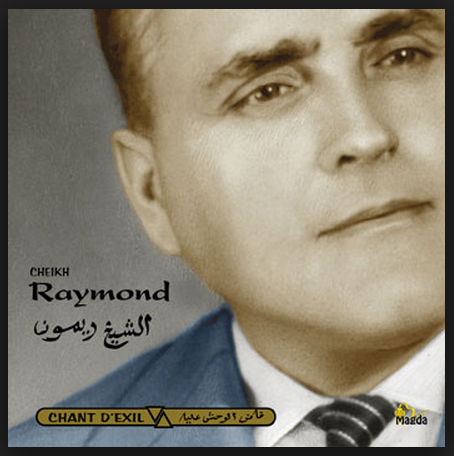من خلال بعض المعطيات التاريخية التي عثرت عليها في مراجع شحيحة حول الموضوع، يمكنني القول؛ إن حادثة قتل الشيخ الريمون( 1912 - 1961) على يد مقاتلي ثورة الجزائر بناء على تقارير تتهمه بالعمل ضدها سراً، كانت المنعرج الحقيقي لنهاية مرحلة زاخرة بالتعاون الفني المعلن، بين المجتمع الجزائري المسلم وبين الفنانين اليهود الذين ذاع صيتهم في النصف الأول من القرن الماضي، حيث دفعت تلك الحادثة إلى رحيل شبه كليّ ليهود الجزائر من المناطق الجزائريّة، التي سكنوها منذ القرن الثالث للميلاد والتي ساهموا فيها بقدر كبير في تفعيل الحركة الفنية، خصوصا الموسيقية، وسط مجتمع مسلم محافظ، يتعفّف عنالخوض في “لهو الموسيقى والغناء”. وإلى غاية بداية الألفية الثانية، كانت الحفلات والأعراس من تنشيط النسوة فيما بينهن، أو بمشاركة ذكوريّة يهودية لا تجد حرجا في الغناء أوالاختلاط بالنساء. وفي تلك الفترة بالذات ظهرت أسماء فنيّة يهودية، سنأتي على ذكرها، شكّلت جانبا مهما من الخارطة الغنائية الجزائرية، بل وكانت عرّابة بعض الطبوع الموسيقية التي لا تزال تحافظ على مكانتها الفنية في بعض ولايات الوطن وحتى في البلدان المجاورة. وفي هذا الصدد قد يري البعض بوجهة نظر ما، أن خوض اليهود في المجال الفني المحتشم حينها، لا يخرج عن كونه إطارا لترويج ثقافة الانحلال والتفسخ ومن ثم فهي تكريس لسلوكيات غير أخلاقية، فضلا عما تجسده من هبوط وانحدار في الذائقة الفنية، على غرار أغاني “دور بها يا الشيباني” و”قفطانك محلول” و”يا بلاّرج يا طويل القايمة / ما ترعاش في بحيرة لالّة”، إلى غير ذلك.. غير أن أبرز معالم الوجه الآخر للصورة هو ما يتمثل في أغاني المديح النبوي التي انتشرت قبل منتصف القرن الماضي، مثل الأغني ة التي يقول مطلعها “انزاد النبي وفرحنا بيه /صلى الله عليه / يا عاشقين رسول الله/ صلى الله عليه“.. وهي من التراث التونسي، وكذلك الشأن بالنسبة للمدائح النبوية بالتحديد، مثل أغنية “يا كعبة يا بيت ربي محلاك/ يا سلام على الخليل اللي بناك”، وهي أصلا - حسب الأستاذ محمد صقلي في كتابه اليهود في الغناء العربي - للمطرب الليبي المعروف بالبشير فهمي، أعادها الكثير من الفنانين اليهود، قبل أن يطبعها الفنان الجزائري الراحل عبد الرحمان عزيز بصوته. ولعل هاتين الأغنيتين خير مثال على هذا اللون الذي حقق شهرة منقطعة النظير في كل حواضر ومدن المغرب العربي منذ الأربعينيات وحتى الخمسينيات والستينيات. والمفارقة هنا أن الأغنيتين معا تغنى بهما أكثر من مطرب من الطائفة اليهودية، وإن كان التسجيل الأكثر شهرة هو الذي يحمل صوت المطرب التونسي راؤول جورنو.
وفي مثال آخر، يتردد في الأوساط الفنية أن من كتب أغنية “قالوا العرب قالوا” التي تبكي مقتل صالح باي وتحمل اسمه أيضاً، امرأة يهودية، خصوصا أن الرواية الشعبية تذكر أن اليهود أحبوا صالح باي، لأنه أعطاهم حقوقاً وخصص لهم حيّا اسمه “الشارع” في قسنطينة.
رحلة الحرفة من الأندلس إلى القصبة
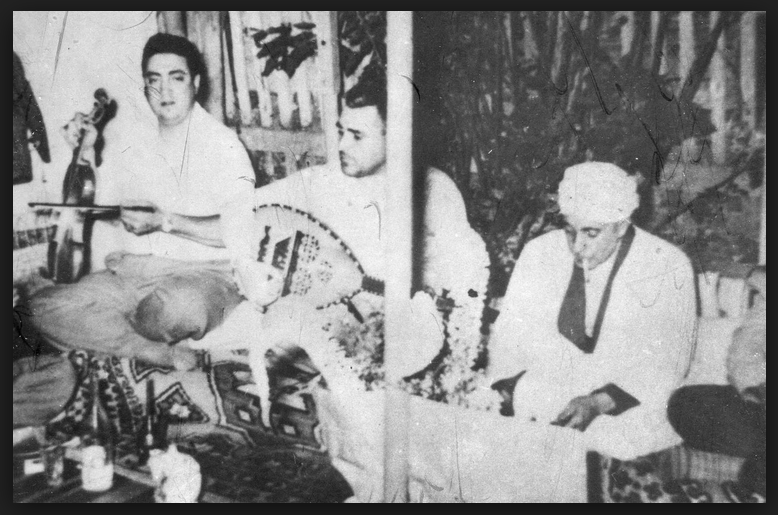
كي نتحدث عن انتقال الطبوع الموسيقية التي خاض فيها الفنانون اليهود، زمنيا وجغرافيا، داخل المنطقة المغاربية، لا بد أن نعود إلى خلفيات التواجد اليهودي في المنطقة، بداية من نزوح الطائفة اليهودية تحت مسمى “التوشيبيم”، إلى شمال إفريقيا وصولا إلى دخول يهود الأندلس المعروفين باسم “الميغوراشيم”، إلى المنطقة مع الموركسيين، هروبا من قبضة الكنيسة الكاثوليكية بعد سقوط الأندلس. ويمكن القول إن أهم ما يسّر أمام اليهود النازحين سبل الإندماج ومن ثم الاستقرار في المنطقة هو ما حملوه معهم من مهارات شتى، خصوصا حرفة الصياغة، والصرافة، إضافة إلى حرفة الموسيقى والغناء بما في ذلك طبع الغناء الأندلسي، وخصوصا الغرناطي الذي استقر في وهران وتلمسان، ليجد امتدادا خاصا لدى يهود المغرب ثم ليمتد بواسطة عائلات يهودية هاجرت من تلمسان إلى كل من فاس، الرباط، تطوان ووجدة. كما استقر نوع “الصنعة” في الجزائر العاصمة، وانتقل “المالوف” من قسنطينة نحو تونس فالقيروان وصولا إلى ليبيا. وبعدما انتشرت هذه الطبوع، توسعت دائرة الإهتمام لتطال قصائد “الملحون” في المغرب، “الحوزي” في الجزائر، و”الفوندو” في تونس. كما استحدث اليهود أنماطا جديدة من العناء الخاص بالأفراح والأعراس وحفلات الختان، خصوصا مع استقرار الوضع السياسي في الجزائر بداية القرن العشرين، وظهور الأسطوانات والمذياع.
وقد تبقى الصورة غير مكتملة إذا لم نتطرق بالإشارة إلى فن “الفرانكو أراب”، وهو لون من الغناء انبثق أصلا من غناء الراي السائد والمتجذر في مدينة وهران، غير أنه استفاد مما عرفته المدينة من أنماط غنائية سواء منها الفلامنكو الإسباني، أوأنواع الموسيقى التي سرعان ما بدأت تنتشر في تلك الفترة، والتي كان لليهود دور فاعل في دخولها إلى المنطقة.
محي الدين باشطارزي.. تلميذ اليهود ومعلّمهم
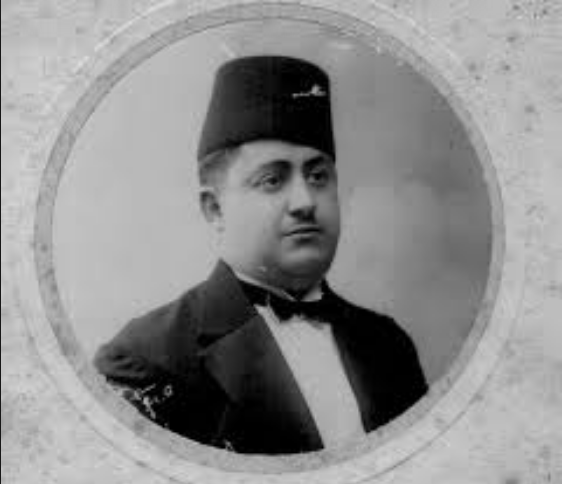
قد لا يعرف الكثيرون أن الفنان الاستثنائي، محي الدين باشطارزي (1897/1986) رائد المسرح والأغنية العصرية في الجزائر والمؤسس الفعلي لما يعرف بمسرح المنوعات، هو صاحب الفضل على أهم الوجوه الفنية الجزائرية في النصف الأول من القرن العشرين، بما فيهم الفنانين اليهود الذي اقتربوا من باشطارزي مثلما اقترب هو من فنانين يهود سبقوه في الحرفة. ومن أبرز الفنانين اليهود الذي حفظوا فضل بشطارزي، الفنان اليهودي سالم الهلالي المنحدر من منطقة سوق أهراس والمولود بمدينة عنابة في 30 جويلية 1920.
حين وطئت قدماه وحيدا ميناء مرسيليا قادما إليها من عنابة في ربيع 1934، لم يكن عمر سالم يتجاوز أربعة عشر عاما، ولأن الفتى لم تكن له وجهة معينة، فقد أسلم للضياع في خضم هذه المدينة العالمية الكبيرة، ليجد نفسه في مواجهة متاعب لا حصر لها، ما لا يقل عن ثلاث سنوات، قبل أن يعانق الشهرة ويكتسب اسمه الفني ويجترح له شهرة ويصبح نجما، في أداء الأغاني الإسبانية أو الفلامينكو، إلى جانب عاصميته، بفضل العرّاب محي الدين باشطرزي الذي أدخله فرقته التي جالت عبر العديد من العواصم الأوروبية سنة 1938، فكانت الخطوة الأولى لتألق الهلالي بشكل غير مسبوق خلال الحفل الذي أقامه بأكبر قاعة سينمائية بمدينة مرسيليا الفرنسية برعاية خاصة من محي الدين. وبهذا الصنيع، أي الاهتمام بمطرب شاب مغمور، يكون باشطارزي، وهو من هو في تاريخ الأغنية والمسرح على السواء بالجزائر، قد أبى إلا أن يرد دين أستاذه الموسيقي اليهودي ناثان إدمون يافيل، الموسيقي والباحث اليهودي المولود في الجزائر.
فنانون يهود أنقذهم الإسلام
هناك حادثة تلفت الإنتباه أوردها الأستاذ أحمد حشلف في معرض كتابته عن هذا الفنان، تستحق أن تروى لأنها تحمل أكثر من مغزى ومن دلالة.. كانت فرنسا عام 1940 تعيش على إيقاع الحرب العالمية الثانية، وقد بدأت الشبهات تلاحق أفراد الطائفة اليهودية، مما ألجأها إلى التقية أوالتخفي، فكان بعض الفنانين اليهود القادمين من شمال إفريقيا، قاب قوسين من أن يقضوا بقية حياتهم في معسكرات الإعتقال، ومنهم سالم الهلالي قبل التحاقه بفرقة باشطارزي؛ حيث كان على وشك الوقوع في قبضة رجال المخابرات الفرنسية العاملين لحساب حومة فيشي الحليفة لألمانيا النازية. لم يكن أمام سالم الهلالي سوى الاستنجاد بالشيخ قدور بن غبريط، خطيب جامع باريس يومها، والذي لم يتردد في تسليمه شهادة تثبت اعتناق والده الإسلام. ولكي يضفي على هذا الإجراء طابع المصداقية، حرص الشيخ بنغبريط على كتابة نفس الاسم على شاهد قبر خرب في مقبرة المسلمين بمنطقة “بوبينيي”.
المفارقة الجميلة الأخرى، يذكرها الأستاذ محمد صقلي في كتابه اليهود في الغناء العربي، وهي أن الشيخ بنغبريط، عمل على إدماج بعض الفنانين اليهود ومن بينهم سالم الهلالي، كمغن في المقهى التابع للجامع، ضمن فرقة موسيقية كان أغلب عناصرها من الأتراك.
على سبيل الذكر
من القصبة والسويقة و"بلاص دارم" إلى العالمية
رينيت الوهرانية ومسعود المديوني
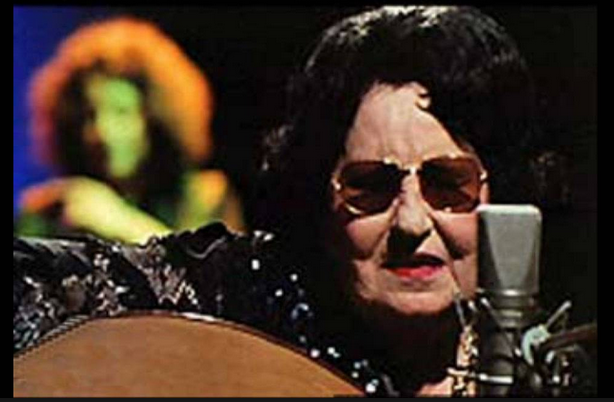
من أهم الأسماء النسوية التي جسدت حضورا متميزا، سواء من حيث الأداء الغنائي أوالعزف في فترة معينة من تاريخ الأغنية الجزائرية، خاصة تجربتها ضمن جوقة الشيخ “محمد العنقى” الذي سجلت معه العديد من السهرات الإذاعية.. فنانة عصامية دفعها طموحها إلى تعلم اللغة العربية - رغم آفة العمى - لغاية واحدة هي اكتساب القدرة على التغني بالطرب “الغرناطي“..
سلطانة داوود أو رينيت الوهرانية، ولدت بمدينة تيارت عام 1918 من أب حاخام من أصل مغربي، فقدت نعمة البصر في العام الثاني من عمرها نتيجة مرض الجدري.. قررت أمها تعليمها الغناء الموسيقى فدفعت بها إلى “مسعود المديوني” الملقب بـ “سعود الوهراني”، المطرب اليهودي وعازف الكمان الشهير بغناء الحوزي. كان لمسعود، أكبر أثر على تجربتها الفنية كمطربة وكنجمة غناء، فعلى يد هذا الفنان تلقت الطفلة المبادىء الأولى في الموسيقى. فبعد الإيقاع على “الدربوكة” ثم العزف على”المندولين” أقبلت بحماس على تعلم آلة العود وتطوير قدرتها الصوتية، وهو ما حفزه على تشغيلها بالمقهى الذي كان يملكه بحارة اليهود بوهران، وأطلق عليها بالتالي الاسم الذي يقترن بها طوال مشوارها الفني وهو “رينيت”، أي الملكة الصغيرة باللغة الفرنسية. ولهذا الإسم قصة تستحق أن تروى، لأنه كان يقصد تسميتها الضفدعة الصغيرة غير أن الخطأ الإملائي حوّلها إلى رينيت.
وعلى امتداد عقد من الزمن صار لهذا الثنائي “رينيت ومسعود المديوني” شأن كبير في إحياء الحفلات والأعراس وأفراح الموالد والختان أوالعقيقة، صحبة جوقتهما الموسيقية، وذلك في معظم مناطق البلاد، إلى أن تفرقت بهما السبل. وكانت بداية المنعطف عام 1938 حين قرر مسعود المديوني إنشاء مقهى موسيقي بباريس، التحقت به “سلطانة داوود” لكنها سرعان ما عادت أدراجها صوب الجزائر. ذلك أن مسعود المديوني ألقي عليه القبض، في حملة مداهمة لمطاردة اليهود في مدينة مرسيليا، وتم نقله إلى أحد معسكرات الاعتقال فانقطعت أخباره وطواه النسيان واعتبر في عداد المفقودين.
في بحر الأربعينيات وبعودتها مجددا إلى الجزائر استقرت في العاصمة تاركة مسقط رأسها وهران، وهي في السادسة والعشرين من عمرها، حققت انتشارا واسعا عزز شهرتها من خلال تقديمها لسهرتين في الأسبوع على أمواج الإذاعة الجزائرية. في هذه الفترة عملت سلطانة داوود جنبا إلى جنب مع “أليس فتوسي” نجمة قسنطينة، وذلك في إحياء أفراح المناسبات كالأعراس والموالد وحفلات الختان. وكرست جهدها لترسيخ مكانتها بين معاصريها من نجوم المغنى سواء منهم المسلمون أو اليهود، أمثال فضيلة الدزيرية، مريم فكاي، زهرة الفاسية، عبد الكريم دالي ودحمان بن عاشور، وكانت جوقتها الموسيقية تتكون من أشهر الموسيقيين وفي مقدمتهم عازف البيانو مصطفى اسكندراني. توفيت رينيت الوهرانية في سن الثمانين وذلك عام.
لين مونتي..من الجزائر إلى القاهرة
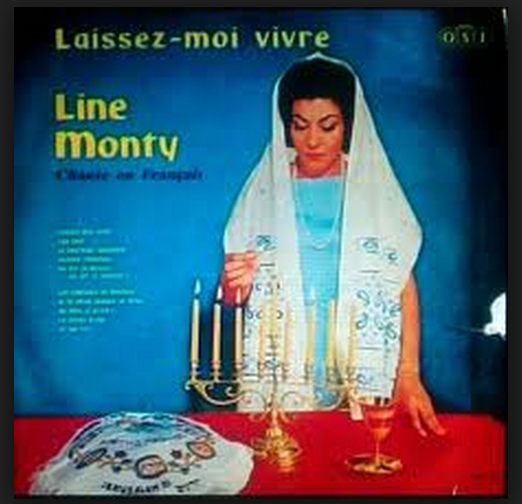
لين مونتي.. مغنية يهودية، ولدت بالجزائر العاصمة.. من الجزائر إلى فرنسا، ومن نيويورك إلى مصر. من الأغنية الفرنسية والتألق ثم التتويج في قاعة الأولمبيا، إلى الغناء أمام أم كلثوم ومحمد عبد الوهاب. عانقت الشهرة الواسعة عبر مسارح المنوعات، خاصة بعد حصولها على جائزة “إيديث بياف” مطربة فرنسا الأولى، ثم الجائزة الأولى في قاعة “أولمبيا”، وهو ما أهلها لتكون سفيرة الأغنية الفرنسية في العديد من أنحاء العالم. أحيت حفلات في كندا، الولايات المتحدة، وخاصة في نيويورك، حيث ارتبط اسمها بأحد الملاهي لحوالي عقد من الزمن، ثم قامت برحلات بعد ذلك إلى أمريكا اللاتينية، ألمانيا وهولندا، لتحط الرحال أخيرا في الشرق الأوسط وفي مصر تحديدا، المحطة التي تعتبر منعطفا في مسارها الفني. كانت البداية في لقائها بالفنان فريد الأطرش الذي دربها على أحد ألحانه، دون أن تذكر المصادر ما إذا توج هذا التعاون بينهما، وما إذا خرجت الأغنية إلى الوجود أم لا.. في البداية تناقلت أوساط صحفية وفنية خبر المطربة الفرنسية التي تتغنى بالألحان العربية، لتفاجئ الكل بأنها من أصل جزائري.
الشيخ ريمون.. شهبندر اليهود في الجزائر
بعد ديباجة سائق التاكسي عن تاريخ الشيخ ريمون، الذي لم أكن أعرف الكثير عنه، دفعني الفضول إلى معرفته أكثر، لأكتشف أن “ريمون ليريس” لم يكن مغنياً وعازف عود متميزاً فحسب؛ بل كان كبير الجالية اليهودية في قسنطينة وله مكانة مرموقة لدى جاليته في الجزائر كلها. تعلم الفن على يد أستاذه العربي المسلم الشيخ بسطانجي وأبدع فيه، وكان من يوازيه في الجانب المسلم محمد الطاهر الفر?اني، الذي عُرف بعميد المالوف.من أب يهودي من مدينة باتنة، وأم مسيحية فرنسية.. كان محاطا بهالة احترام، الكل يقدر فنه ويعشقه بحيث “كانت الطرقات تخلو من المارة في قسنطينة حرصا على تتبع حفلاته الأسبوعية قبل أن يقتل في صيف 1961 في أوج احتدام حرب التحرير الجزائرية، وهو ما يحيل إلى طرد يهود المدينة الذين كان يبلغ تعدادهم 40000 نسمة”.
ريمون كان أبرز وجوه المالوف، ليس في الجزائر فقط بل وفي المنطقة عموما، واقترن اسم ريمون ليريس بالمالوف في هذه الحقبة من تاريخ المدينة.
ليلي بونيش.. أوالفنان العالمي
مطرب تجاوزت شهرته حدود الجزائر إلى الأوساط اليهودية السيفارديم، والجالية الجزائرية والمغاربية في فرنسا وأوروبا، وكذلك عبر الشباب الذين تستميلهم ألوان الغناء المتوسطي والإيقاعات الأمريكولاتينية. عاد إلى الأضواء مجددا وهو في السابعة والسبعين من عمره.
كان ذلك سنة 1998، وفي العام الموالي اعتلى مسرح الأولمبيا رفقة عازف البيانو الشهير موريس المديوني. وفي ربيع بورج 2000 بفرنسا، حيا جمهوره في نهاية الحفل متلفعا بالعلم الجزائري..
“إيلي” هو اسمه الحقيقي، بينما ليلي هو اسم التدليل أو الاسم الفني، رأى النور في حي القصبة بالجزائر العاصمة عام 1921، لم يلتحق يوما بالمدرسة ولم يتلق أي تعليم.. يعتبر نفسه مواطنا عالميا، خاصة بعد نجاح حفلاته في اليابان، إسبانيا، النسما، إيطاليا، ألمانيا والسويد. ذلك أنه توصل إلى صيغة تكامل بين التراث والحداثة، يزاوج بين إيقاعات الطرب الأندلسي وبين الآلات الإلكترونية، أو بمعنى أصح المزج بين الغناء اليهودي المغاربي وبين أغاني البوب والروك والفلامينكو، وكذلك موسيقى أمريكا اللاتينية.. وهو بذلك أصبح أحد رموز ما يسمى بأغنية الفرانكو أراب، وهو النوع الغنائي الذي اقترن باسمه منذ الخمسينيات من القرن الماضي.
